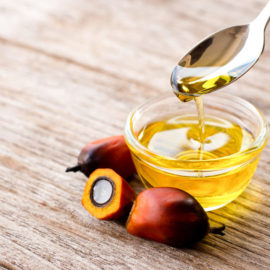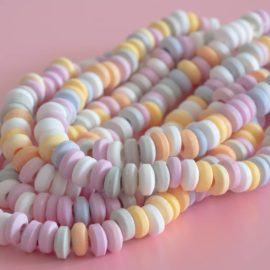The shift of approach from anti-ageing cosmetics to well-ageing has brought many positive transformations, and the focus on the free radicals and ageing science from the perspective of prevention is one of the most promising.
This new paradigm, aimed at promoting healthy skin throughout all stages of life, focuses on a precise understanding of the mechanisms of ageing and their relationship with free radicals.
We now know that it is essential to approach ageing from a factorial perspective that includes factors such as stress, nutrition, and exposure to environmental elements. At a time when pollution is a growing threat to skin health, it is essential to understand the action of free radicals on the skin as a first step towards creating an effective protection.
Nowadays, advances in cosmetic science go well beyond merely reducing wrinkles, and focus on complex processes such as those linking free radicals and ageing.
Content
Relationship between free radicals and ageing
Free radicals are highly reactive molecules that contain at least one unpaired electron. The most common are oxygen free radicals, which include species such as superoxide (O2•-), hydrogen peroxide (H2O2), and hydroxyl radical (•OH). These reactive oxygen species (or ROS) are produced naturally in the body as by-products of cellular metabolism, although they can also be introduced by external factors such as ultraviolet radiation, environmental pollution or smoking, among others.
Free radicals are capable of damaging cells, triggering cellular and functional deterioration in what is known as oxidative stress. This is because ROS molecules are able to react with proteins, lipids and genetic material (DNA). In this context, the process known as lipid peroxidation is a particularly important example for the skin, as long-chain lipids such as triglycerides and ceramides play the most important role in the barrier function (brick & mortar) of the skin structure. When lipoperoxidation occurs, the elongation of the lipid chains becomes disrupted, and hence leading to a decrease in this protective function.
However, the human body and the skin are capable of neutralising this effect through antioxidants, in a delicate balance that reveals the true “intelligence” of cellular tissues and human skin. This balance between ROS production and the body’s ability to neutralise them can, however, be disturbed in a number of ways. Overexposure to free radicals or ageing itself are two of the most prominent causes.
Therefore, ageing of the skin as a natural process implies a reduced ability to neutralise free radicals and thus an increase in oxidative stress and greater cellular damage. This is particularly the case at certain stages of life, for example during menopause, when the skin becomes more vulnerable to environmental stressors.
At the same time, this process can be accelerated by factors such as exposure to atmospheric pollutants, leading to a significant increase in the production of ROS.
Understanding this link between free radicals and ageing has been instrumental, since it is at the very root of this mechanism where the most promising answers in the field of well-ageing lie.
Effects on the skin caused by free radicals
- Oxidative stress caused by free radicals damages the collagen and elastin fibres of the skin, which provide structure and elasticity to the skin. This damage causes the skin to lose firmness and elasticity, resulting in the formation of wrinkles and fine lines.
- The damage described above can also contribute to excessive melanin production, leading to the appearance of dark patches or hyperpigmentation of the skin.
- The skin barrier damaged by free radicals leads to moisture loss through a process known as Transepidermal Water Loss (TEWL).
- The skin damaged by free radicals is also more sensitive to environmental factors and more vulnerable to irritation and inflammation.
Cosmetic science and technology together against free radicals and ageing
At Provital, we are committed to innovative natural cosmetics that embody the ideals of well-ageing and deliver real results, that is why we have developed Shiloxome™. An anti-pollution and skin barrier restructuring active ingredient that protects the skin from environmental pollutants while preserving the microbiome barrier.
Shiloxome™ is the result of our Triplobiome™ Technology biotechnology platform, a revolutionary breakthrough that enables the use of endophytes for the development of active ingredients in cosmetics. In this particular case, we isolated the endophytic yeast of the Kwoniella mangroviensis species from inside the bark of the cork oak (Quercus suber), which is able to protect the living parts of the tree, defend them against pathogens and promote adaptation to climatic changes.
Shiloxome™ harnesses this protective power to create a well-ageing active ingredient that acts preventively and correctively at the epidermal and dermal skin cell level, making it an indispensable ally in tackling the negative effects of free radicals and ageing.
Our in vitro results provide transparency on the protective effect against pollution. In a first study, we quantified the levels of ROS and the expression of genes involved in the inflammatory response after treatment of keratinocytes exposed to Urban Dust® – a standard mixture of common air pollutants from the Washington D.C. area – as a stressor. Thus, while pollution generates a strong increase in ROS production, treatment of these cells with Shiloxome™ significantly prevents their formation. In addition, the active ingredient also showed a dose-dependent impact in preventing the increase of 5 known pro-inflammatory mediators (CCL5, COX2, CSF2, GRO1 and TNF-α), whose gene expression in keratinocytes had increased after exposure to Urban Dust®.
Regarding the quantification of the well-ageing activity of Shiloxome™, a second in vitro whole transcriptome analysis was performed by RNA-Seq in aged fibroblasts (FDH). This revealed that Shiloxome™ alters nearly 400 genes related to cellular processes and, after a subsequent complex bioinformatics analysis, we quantified the cellular pathways that Shiloxome™ activates most significantly. We thus know that Shiloxome™ has an exceptional impact on remodelling skin structure and function. Moreover, the effect of Shiloxome™ on collagen and elastin production was also shown by analysing the content of both proteins in FDH after being treated with Shiloxome™, with results of +14% in elastin protein level and +23% in collagen I level.
Finally, in vivo efficacy analysis showed the ability of this active ingredient to improve skin ageing and exposure to pollutants. In a panel composed of women at different stages of menopause and living in a highly polluted city, the results of the different instrumental tests showed significant improvements in the following key parameters related to skin ageing:
- Decrease in TEWL (-3.9% vs. placebo), the objective measurement method for assessing the recovery of skin barrier function.
- Increased radiance (-16.6% vs. placebo)
- More even skin tone (-4.5% colour variation vs. placebo)
- Rejuvenated microstructure measured through skin surface isotropy (+4.3% vs. placebo)
- Restoration of skin elasticity in fibre disposition (-7.6%), recovery of elasticity (+5.8%) and elastic fatigue (-7.5%), all vs. placebo.
All in all, this active ingredient stands as an exceptional development to visibly tackle the signs of ageing by improving the skin’s natural barriers and protecting it from pollution and free radicals.
No comments yet
There are no comments on this post yet.





Leave a comment